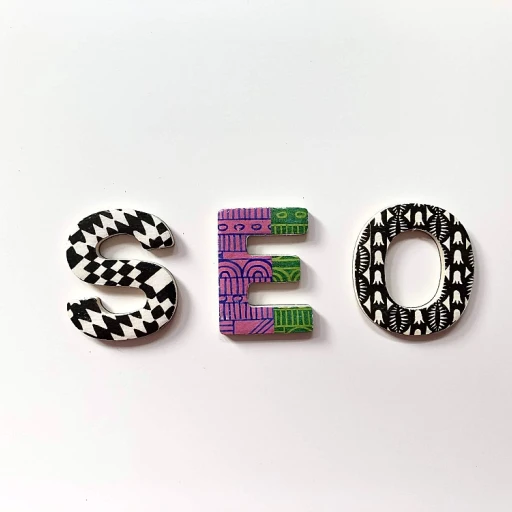
Understanding the HubSpot Report on Ad Influence
Key Insights from HubSpot's Ad Influence Analysis
The report from HubSpot sheds light on how different ad influences shape organic SEO strategies by offering a comprehensive understanding of marketing dynamics influenced by paid and organic traffic sources. Understanding these dynamics can be a game-changer for businesses looking to optimize their marketing campaigns effectively. The report analyzes various data points that marketers can use to enhance their campaign performance. By tracking the lifecycle stage of leads through HubSpot's CRM integration and attribution reporting, businesses can identify which ads and content resonate most with their audience.The Impact of Advertising on Organic Traffic
Advertising can significantly affect organic search results. With HubSpot's data-driven approach, marketers can discern patterns in how various ad formats, like paid search and social media ads, influence organic search performance. HubSpot's marketing hub helps in tracking these effects, allowing for a robust analysis that links campaign efforts directly to revenue generation.The Role of Attribution Reports
Attribution models offered within HubSpot CRM highlight how contact points contribute to conversion rates. By leveraging attribution reports, marketers can pinpoint the original source of traffic and understand the customer journey. This paves the way for fine-tuning lead generation tactics and optimizing marketing dashboards to reflect true campaign performance.For those interested in exploring ways to enhance B2B marketing efforts with AI, check out this insightful resource on enhancing B2B video production with AI in SEO.
The Role of Artificial Intelligence in SEO
AI in SEO: Transforming Search Algorithms
The integration of artificial intelligence into search engine optimization has revolutionized the way marketers approach content, campaigns, and overall marketing strategy. Search engines now rely on AI to analyze massive amounts of data, making it essential for businesses to adapt their strategies to remain competitive.
AI's ability to process and interpret vast amounts of information in real time allows marketers to refine their content and tracking efforts with unparalleled precision. This means optimizing for not only keywords but also user intent and behavior, which ultimately enhances organic search performance and boosts overall visibility.
HubSpot, through its comprehensive reports, highlights how AI can be leveraged to gain insights into how different ad campaigns affect organic traffic. Understanding the nuances of attribution and the customer journey becomes more seamless with AI-driven analytics, leading to more informed decisions about the balance between paid ads and organic search efforts.
Additionally, AI-powered marketing hub tools like HubSpot ads offer advanced attribution models and tracking features. This allows businesses to better understand how various marketing dashboards influence lifecycle stages, conversion rates, and lead scoring. Incorporating AI in SEO strategies equips marketers to foresee changes in campaign performance, allocate resources effectively, and ultimately drive more significant revenue from both paid and organic sources.
To explore further how AI is reshaping the landscape, delve into the understanding the role of a digital creator in this evolving digital age.
AI-Driven Insights from HubSpot's Report
Unveiling Data-Driven Insights for Effective Campaigns
The HubSpot report offers an in-depth view into how data-driven insights shape the way marketers plan and execute effective campaigns. With the integration of artificial intelligence, HubSpot enables businesses to unlock intricate layers of their marketing hub, providing valuable information critical for both organic and paid strategies. AI plays a vital role in dissecting how ads impact lead conversion and revenue generation. The report offers key data on customer journey mapping, giving marketers a clearer understanding of how paid ads, such as Facebook ads, contribute to traffic and lead generation. In the era of digital marketing, optimizing the balance between social media influence and organic search results becomes more crucial. HubSpot's AI-driven methods offer attribution reporting which identifies the original source and tracks the effectiveness of each campaign in reaching lifecycle stages of different contacts. Marketers can enhance campaign performance by utilizing HubSpot's insights to improve their attribution model. This model provides a clearer picture of the contribution of both paid and organic channels to overall conversion rates, helping in lead scoring, and eventually driving optimized campaign performance. For those interested in a deeper dive into data tracking and attribution models in marketing, here's an exclusive resource on SEO anchor.Balancing Paid and Organic Strategies
Strategic Equilibrium Between Paid and Organic Efforts
In the evolving landscape of digital marketing, harnessing both paid and organic strategies is crucial for businesses aiming to maximize their reach and effectiveness. By understanding the distinctions and how they complement each other, marketing teams can create cohesive strategies that enhance campaign performance.
Paid ads, such as Facebook ads, provide immediate visibility and can be meticulously tracked for insights. Within the framework of HubSpot ads, marketers gain tangible attribution reports, enabling them to trace the customer journey and lifecycle stage of each contact. Such data-driven insights are key in evaluating conversion rates and ensure that investment in paid media is yielding a return.
Organic search, on the other hand, is a long-haul strategy that nurtures persistent online presence. Utilizing AI and the analytics from HubSpot, marketing teams can fine-tune content strategies, tapping into relevant keywords and tracking search trends. This organic growth not only boosts website traffic but also enhances brand credibility and substance over time.
Finding the balance involves utilizing HubSpot's marketing dashboards to oversee the attribution model and lifecycle stages of leads, ensuring that campaigns resonate well with target audiences across various channels, including social media and organic search.
Furthermore, AI enhances these efforts by refining lead scoring and optimizing content based on user behavior insights. By aligning AI-generated insights from HubSpot’s report with dynamic campaign strategies, brands can effectively manage resources between paid and organic initiatives, ensuring a well-rounded marketing approach.













